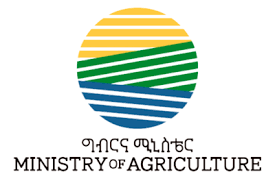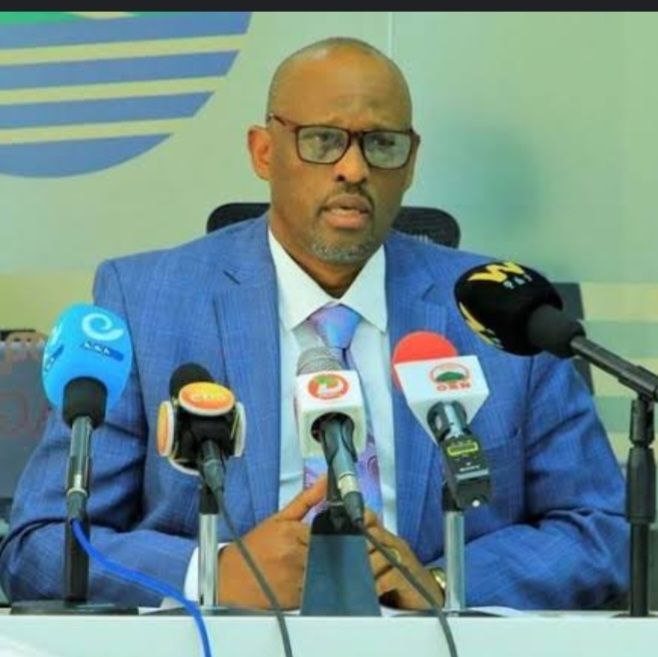
Natural Resource Development Sector
Sectors and Executives>Natural Resources Developement

State Minister
Prof. Eyasu Elias
Natural Resource Development
Duties and Responsibilities
To enhance the productivity and effectiveness of the natural resource development sector, an expansion of extension and training services will be implemented for farmers, pastoralists, private investors, and stakeholders engaged in animal husbandry and fisheries. This strategic initiative aims to provide comprehensive support through tailored programs that address sector-specific needs and promote sustainable practices.
Additionally, it will lead the formulation of policy, strategy, and program ideas designed to accelerate productivity and efficiency within the sector. Upon approval, these initiatives will be promptly implemented to foster growth and resilience.
Moreover, it will establish a robust system for identifying and utilizing national water resources for small-scale agricultural and pastoral irrigation, ensuring efficient and sustainable water management practices. It will oversee the implementation of modern practices in national rural land management, watershed management, agro-forestry, and climate change adaptation to promote environmental sustainability.
Furthermore, it will develop and implement systems for natural resource development research in collaboration with stakeholders, enhancing innovation and knowledge-sharing across the sector. This includes guiding initiatives for climate change adaptation and the implementation of green economy principles.
Lastly, targeted training programs will be provided to enhance skills and knowledge in modernizing natural resource development practices, equipping stakeholders to effectively address evolving challenges.
Additionally, it will coordinate forest development, conservation, research, and technology transfer efforts to maximize national forest benefits while ensuring sustainable utilization and protection. Close monitoring of biodiversity resources will ensure their proper management and equitable distribution of societal benefits.
Sector Lead Executives Duties and Responsibilities
- Lead Executive of Rural Land Management and Use
- Lead Excutive of Natural Resources Development & Protection
- Lead Executive of Small Irrigation Development
- Lead Executive of Soil Resource Development
New policy ideas, legal frameworks, work instructions, manuals, and operational systems crucial for effective rural land management and utilization will be developed and enhanced through rigorous research support. Upon approval, it will ensure their efficient implementation and closely monitor their effectiveness.
It formulates effective strategies for optimal land management and utilization, drawing on best practices from both national and international contexts.
Furthermore, it conducts studies to establish a comprehensive land use rights system in pastoral areas, translating research findings into actionable plans. Awareness training sessions for professionals, stakeholders, and communities are organized to facilitate the adoption and implementation of sound rural land management practices and policies.
It also strengthens enforcement capacities to ensure compliance with land use regulations.
It develops a long-term strategic roadmap to guide the preparation of the Land Use Master Plan, conducting detailed field studies at the national level to assess the appropriate use of agricultural, forestry, grazing, water bodies, infrastructure, industrial parks, watersheds, and other construction sites.
By evaluating the country’s land resource potential and carrying capacity for livestock, it ensures meticulous monitoring and support for the development and implementation of land use systems from regional to local levels. Collaborating closely with regional authorities, it provides professional assistance and recommendations for resolving conflicts arising from different land uses.
Lead Excutive of Natural Resources Development & Protection is accountable to the Natural Resources Development sector and has the following duties and responsibilities are:
Guidelines for enhancing natural resource management in rural development policies and strategies will be prepared, focusing on generating innovative policy ideas and implementing them upon approval. Emphasizing watershed principles and community involvement, comprehensive biophysical, social, and economic data will be collected and analyzed across various watersheds. This analysis will identify development challenges and opportunities, guiding the implementation of integrated watershed development plans tailored to societal needs and local conditions.
A strategic focus on watershed development, community engagement, and soil resource management will enhance the capabilities of professionals through targeted training initiatives at all organizational levels. Identified capacity gaps will be addressed through specialized training sessions, national conferences, and seminars.
Under the auspices of the Ministry of Agriculture, activities aimed at mitigating climate change, drought, and disaster risks will be monitored closely. Support will be provided for the effective implementation of these measures, with continuous evaluation and proposals for enhancements.
Collaboration with development partners engaged in natural resource development, protection, and utilization will be prioritized to leverage collective expertise and resources for comprehensive and sustainable outcomes.
The Lead Executive Officer of Smallholder Irrigation Development will be accountable to the Natural Resources Development sector and will have the following duties and responsibilities.
To enhance the efficiency and effectiveness of small irrigation development and management of irrigation networks, policies and guidelines will be formulated and presented. These initiatives aim to generate new strategies for policy implementation, which will be implemented upon approval. Comprehensive studies will be conducted to explore irrigation water sources and alternatives that ensure social equilibrium and sustainable environmental development. Information will be organized, examined, and analyzed systematically to monitor performance and report findings in collaboration with relevant stakeholders.
A robust national database on irrigated land and water development capacity will be established using geo-referencing and remote sensing technologies within the irrigation information system. This will facilitate sustainable management and efficient utilization of small irrigation networks. Strategies and policies will be designed to expand smallholder irrigation development, implemented in coordination with state entities, and rigorously monitored during execution.
Pre-construction activities for small-holding irrigation networks will be meticulously planned, defining roles and responsibilities of the irrigation user community throughout construction and post-construction phases. Sources of irrigation development funding will be identified, and application guidelines and operational systems will be established accordingly.
Aligned with the institution’s vision and mission, comprehensive work plans will be prepared, coordinated, and directed. Efforts will focus on fostering robust and mutually beneficial work relationships through meticulous study and coordination of work processes. Budgets allocated to the directorate will be meticulously controlled, monitored, and verified to ensure alignment with intended objectives.
It formulates policy and strategy concepts aimed at enhancing soil fertility and productivity, ensuring their implementation upon approval.
Ensures compliance with international agreements concerning soil fertility accepted by the country. Expands soil fertility extension services nationwide, enhancing regional capacities through consultancy, monitoring, and practical technology support. Promotes awareness among farmers, semi-pastoralists, and private investors, collaborating with stakeholders to disseminate soil fertility improvement techniques via media, pamphlets, magazines, posters, and other communication channels.
Establishes a national-level collaborative framework for soil fertility stakeholders, conducting coordination and oversight activities. Utilizes knowledge of the country’s soil resources, fertility levels, and research findings to recommend and implement technologies that enrich soil fertility. Organizes and equips office and field resources required for soil fertility operations.
Monitors and ensures the quality standards of organizations involved in soil enrichment material production and distribution, enhancing their operational capacities as needed. Defines quality standards for soil improvement technologies available to farmers, coordinating with relevant authorities for performance evaluation. Collects and organizes information on emerging soil fertility technologies from diverse sources, presenting them for national approval. Collaborates with institutions to introduce and adopt new soil fertility enhancement technologies from different national and international sources.